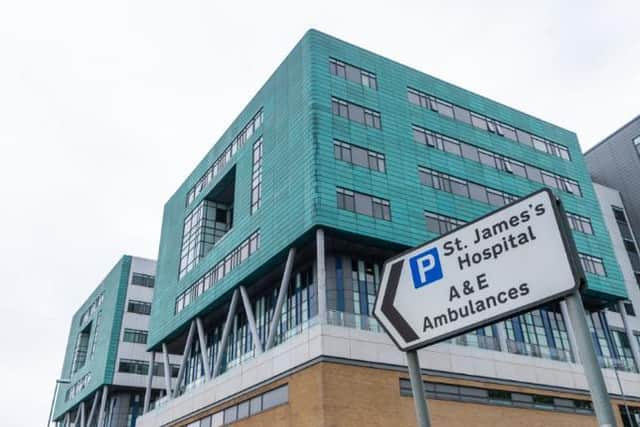NHS staff ‘need a break’ from Covid, says Leeds hospitals chief
and live on Freeview channel 276
Members of a Leeds City Council committee heard that critical care units in Leeds hospitals recently had the highest number of patients on record, while operating theatres had to be converted into bed spaces.
However, he added the numbers of those needing critical care had started to decrease, while another senior healthcare professional said that, due to social distancing and vaccinations, Leeds was seeing far fewer cases of flu and norovirus than would normally be expected in the winter.
Advertisement
Hide AdAdvertisement
Hide AdSpeaking to Leeds City Council’s Adults and Health Scrutiny Board, deputy chief operating officer at Leeds Teaching Hospitals Trust, Mike Harvey, said: “A week ago today, we had 160 (critical care patients) across West Yorkshire. Of those, 93 were in Leeds. That is a record for us, in terms of our bed base of those needing critical care at any point ever.


“You can see the challenges that has presented in terms of the space for managing those patients safely. It has meant we have had to convert a number of operating theatres and gain the support of ward staff and other staff members to come in and support critical care.
“Thankfully, we are (now) under 80 patients in our bed base, but that is still 25-30 percent above our normal numbers.
“So the pressure, whilst it has eased a bit, is going to be with us for some time yet – so the challenges will remain.”
Advertisement
Hide AdAdvertisement
Hide AdHe added the trust had received support from the private Nuffield and Spire hospitals, which “converted to NHS facilities”, taking on NHS inpatients.
Helen Lewis from Leeds Clinical Commissioning Group said: “We thought this would be a difficult winter, but none of us had anticipated how difficult a winter it would be.
“But there is some good news – through our flu vaccinations, our proactive identification of patients most at risk and social distancing, we haven’t had flu, and we haven’t had norovirus.
“We had planned for our normal worst winter, with Covid on top, but some of the things that would normally have seen in Winter have not happened because of our infection prevention and our vaccine.”
Advertisement
Hide AdAdvertisement
Hide AdMr Harvey added that the spikes in cases between November and January would continue to put “considerable pressure” on the system.
“To give an example, we came in this morning to 22 patients in the emergency department needing beds. That creates a pressure on the organisation, as we need those patients to be moved out and safely cared for in wards, where we know we can socially distance them.
“Hopefully we will see a reduction through the summer, and we are able to turn our attention back to recovery and non-Covid work.
“We would like to thank the people of Leeds – we know their efforts in all the things we have had to do to keep on top of the virus have helped. It reduces the spread and reduces the demands on our systems.”
Advertisement
Hide AdAdvertisement
Hide AdCommittee member Coun Paul Truswell paid tribute to NHS staff, but questioned whether enough support for the physical and psychological impacts of treating Covid was available to health workers.
He said: “I don’t think enough people have quite understood how far NHS staff have been pressure cooked by the failure to suppress Covid.
“Rather than just applauding them, I would like to know what they would be saying to us about how they want help to recover. They are such a precious asset and sympathetic words aren’t enough.”
Mr Harvey responded: “We have put in additional clinical psychology and other support to make sure staff have access to counselling whenever they need it.
Advertisement
Hide AdAdvertisement
Hide Ad“Staff will continue to live with this for a long time, and that support will continue through next year and beyond. We have seen staff sickness rates rise but they have thankfully stabilised.
“Our staff are resilient, and they will be up for the fight in the long term, but I think we all, as everybody does, desperately need a break from this soon.”